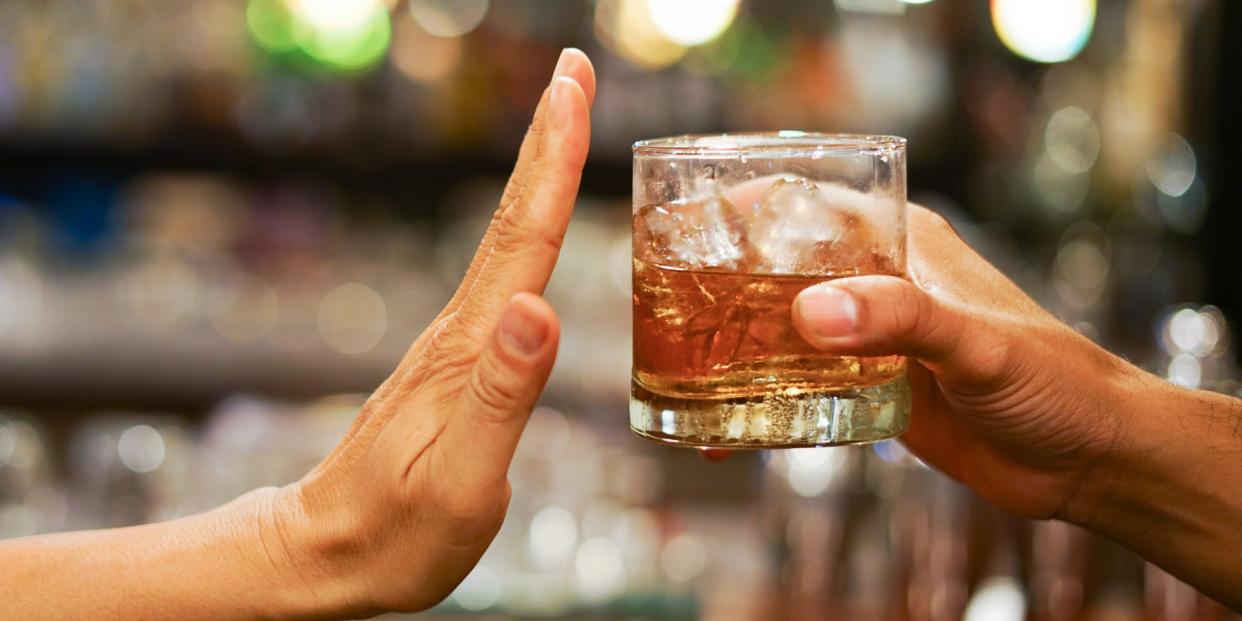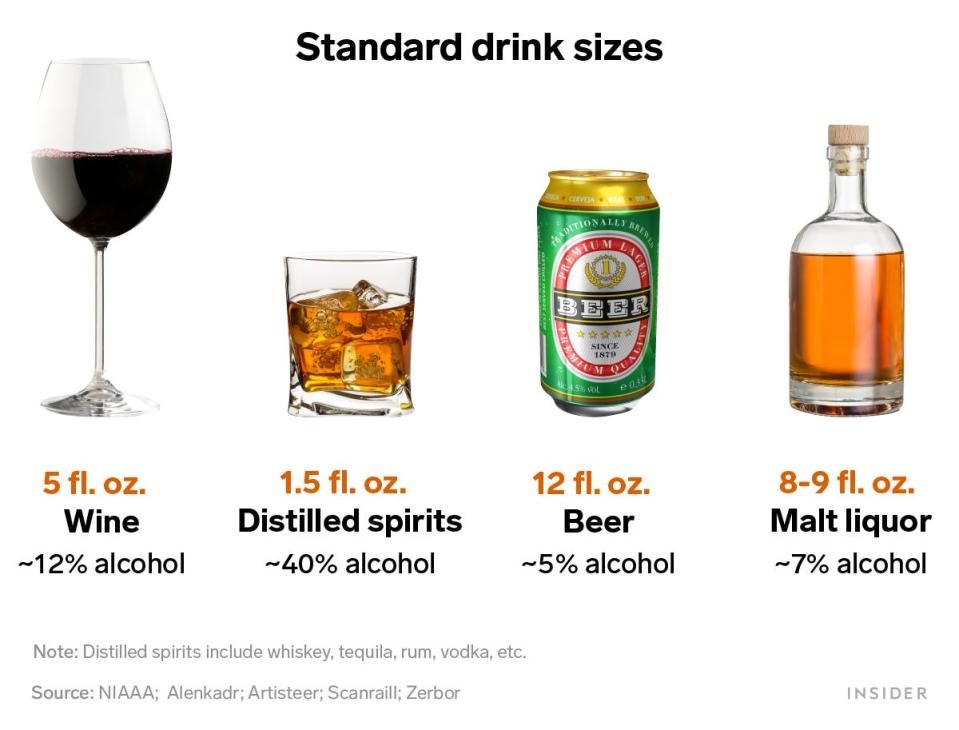5 easy ways to curb drinking alcohol

If you're looking to stop drinking so much, make sure to keep alcohol out of your house.
You should also limit the number of drinks you have and track when you're tempted to drink most.
Eating while you drink can also slow the rate at which you consume alcohol.
Drinking less alcohol can bring mental and physical health benefits, and there are many reasons why someone may want to limit their drinking or cut out alcohol altogether.
According to the CDC, drinking comes along with short-term and long-term health risks, ranging from car crashes to high blood pressure to cancer. Reducing alcohol intake reduces these risks.
Here are five easy tips to curb drinking.
1. Keep alcohol out of your house
Keeping alcohol out of your house is one of the most effective ways to keep yourself from pouring a drink.
"The goal is to make alcohol as 'unavailable' as possible. By creating a number of steps - get your keys, get your wallet, drive to the store - you create barriers to drinking," says David Fiellin, MD, an addiction medicine expert at Yale Medicine.
2. Set a limit on the number of drinks you can have
Going into every day with a set number of drinks you can have can help curb your drinking. You can even set a few days of the week as alcohol-free days. You should set your own schedule based on your own consumption habits and goals.
The CDC defines drinking in moderation as two drinks per day for men and one drink per day for women. However, many engage in more drinking than this. Binge drinking entails having four or more drinks in two hours for women and five or more drinks for men. About 25.8% of people 18 or older binge drank in 2019, and 14.5 million adults have an alcohol use disorder.
Fiellin says it's important to note that there is the same amount of alcohol in a 12-ounce bottle of beer, a 5-ounce glass of wine, and a 1.5 ounce shot of distilled spirits. Be careful to follow these guidelines when consuming alcohol, since larger mugs of beer, heavy pours of wine, and mixed drinks might actually be more than one drink.

"If you have difficulty setting limits or staying under these limits, it can indicate a loss of control over your drinking and a reason to seek help," says Fiellin.
3. Eat while you drink
Eating while you drink can be beneficial for a few reasons. First, it may slow the rate at which you consume alcohol. Secondly, you may also be less likely to drink more if you are full from eating your food.
Furthermore, eating while you drink can change how your body processes the alcohol.
"Food slows the absorption of alcohol which decreases the rate at which alcohol enters the bloodstream. This can decrease the reinforcing effect of alcohol to a small degree," says Fiellin. This means it will decrease the stimulation and intoxication that people feel when they drink alcohol.
4. Keep a journal of your drinking habits
Fiellin says keeping a journal of your drinking habits can help to reinforce how you stick to your limits. You can write down the limits that you set for yourself daily or weekly, as well as the number of drinks that you actually consume.
You can also write down how you were feeling before you had the drinks plus where you were when you drank to determine if there is a pattern. This can help give you insight into why you're drinking so much, and can help you figure out if you're drinking due to a certain trigger. For example, you may realize you're always drinking when you're sad to try to numb the pain, or you're always drinking when you're with certain friends.
5. Replace drinking with a healthier habit
There are many healthy habits you can replace drinking with, whether it's drinking a healthier option, such as sparkling water, or doing something different altogether.
"If we do something - anything - while we are thinking of having that first drink, we change our focus to something hopefully healthier," says Fiellin.
He suggests engaging in other activities such as:
Spending time with a friend or family member. Spending time with a loved one can help you feel joy without the alcohol.
Cooking. This will occupy your mind, time, and hands - plus, it will result in a sense of accomplishment once you're finished.
Exercising. If you're drinking to feel good, you can instead turn to exercise to release natural feel-good hormones, like endorphins.
Reading. This may occupy your mind and take your thoughts off the reason you wanted a drink in the first place.
Start a new hobby. Find another activity that feels more rewarding than having an alcoholic beverage. Maybe it's playing the guitar or taking up a craft project."By creating new habits, we avoid the daily rituals that perpetuate daily repetitive alcohol use," says Fiellin.
Insider's takeaway
Following these five tips may help you curb your drinking. If you still have trouble cutting back after following these tips, especially if you're struggling with sticking to drink limits that you set for yourself, speak to your doctor for help.
Drinking too much alcohol can be terrible for your heart and overall health - here's how much you can drink safelyHow much alcohol you have to drink before it weakens your immune systemHow to talk to someone about their alcohol use and what resources can helpA timeline of symptoms to expect during alcohol withdrawal and how to get proper treatment
Read the original article on Insider

